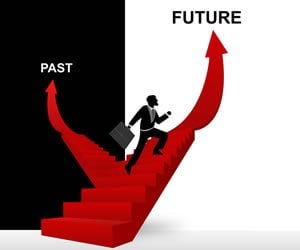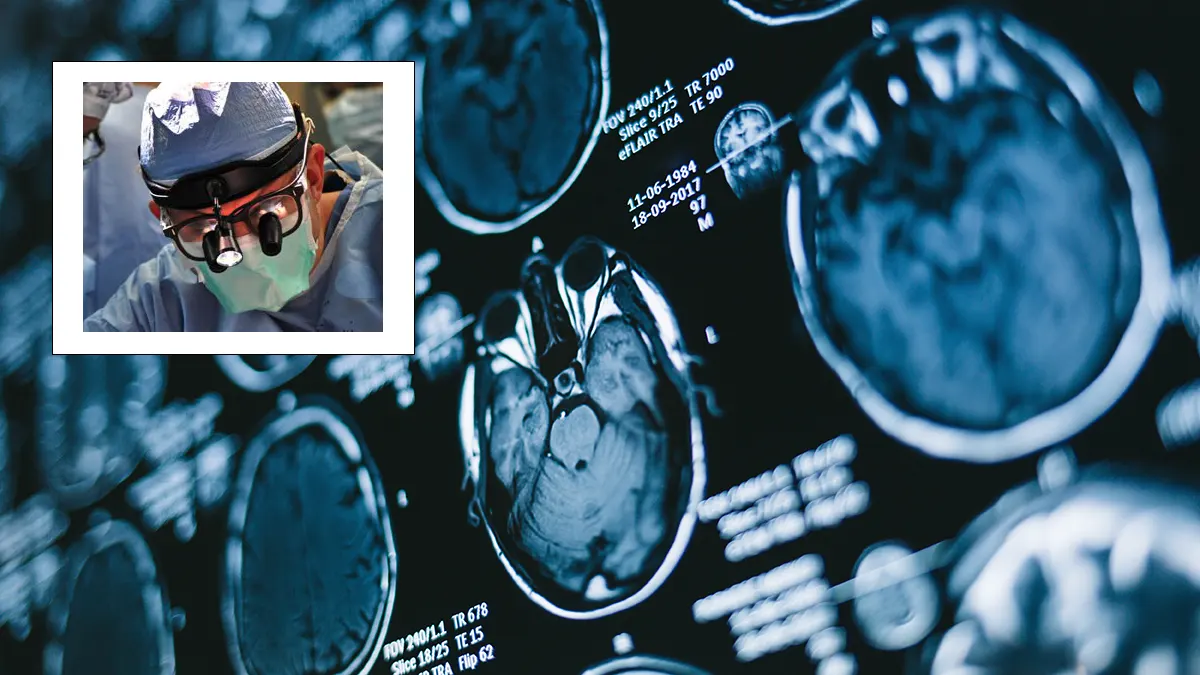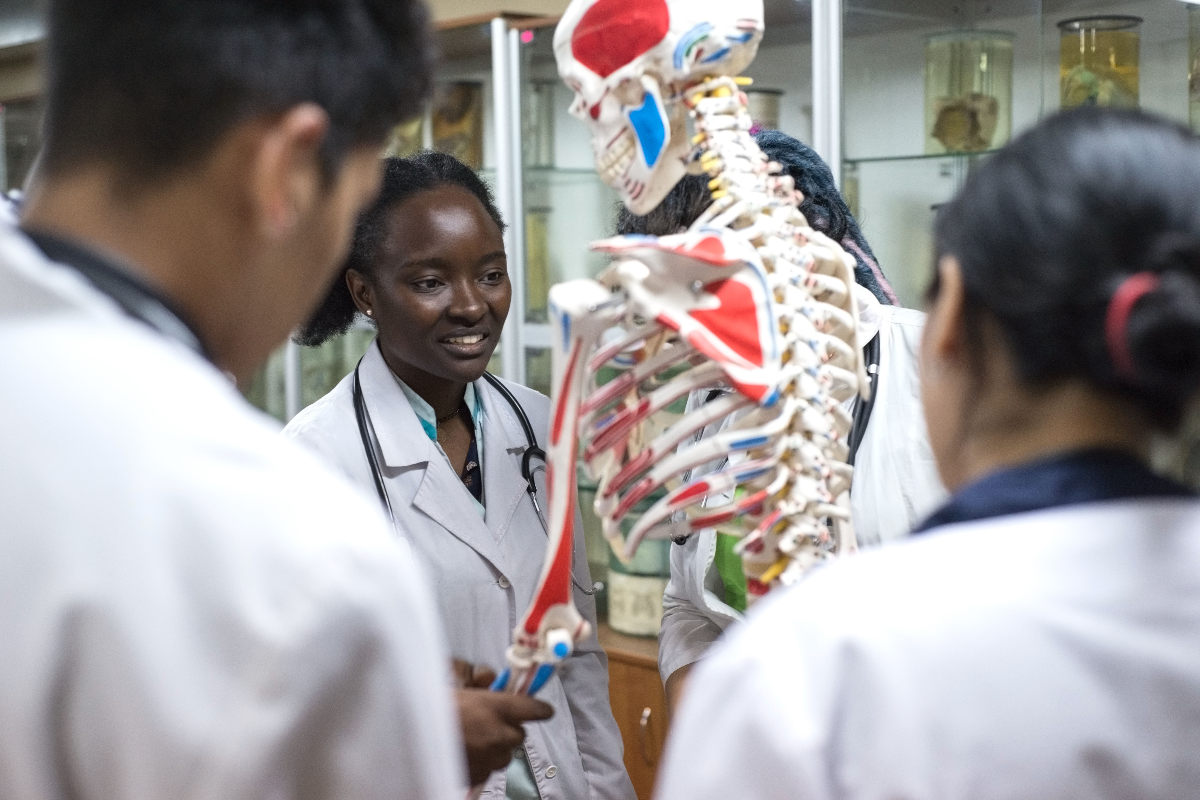As an undergraduate student, I wanted to know how to get into medical school, and I wanted it straight from the source: the medical students. I figured that because they got in, they must have it figured out.
Then I got accepted into medical school and realized the truth. While there are some real lessons to learn to be more successful, medical school admissions can be a pretty arbitrary process. It’s actually more of a crap shoot than you would like to think. I gave myself less than a 1% chance of getting in to my current school, yet here I am. My state school, where I considered myself very competitive (higher than average stats, etc) didn’t even put me on their waitlist. Why? No clue.
medical school
Six Things to Remember While Parenting in Medical School
Some advice to help you be both a professional student and the best parent you can be.
Searching for Your Dumbledore: Finding a Mentor
Where would Harry be without Dumbledore? We all need mentors, and they can be critical throughout your career development. Whether you are an undergraduate thinking about applying to graduate or professional school, a medical student wading through residency options or a post-doc looking for faculty positions, the relationships you develop with your mentors can be invaluable. Mentors can give advice, provide encouragement or a reality check, offer insight from their experience, and expand your network by connecting you with their own friends and colleagues. The ideal mentoring relationship is one that evolves over time where the mentor takes a genuine interest in the success of the mentee. We all recognize that mentors are important. But how do you find them? And, once you have, how do you nurture the relationship so it can thrive?
Post Undergrad: Getting Ready for Medical School or a Gap Year
For many students interested in a career in medicine, the period after the final year of undergraduate education represents a time of transition to medical school or to furthering their experiences and their education in preparation for applying to medical school. This month’s article from the Association of American Medical Colleges (AAMC) focuses on those two pathways.
20 Questions: Brian Walcott, MD, Neurosurgery
Brian Walcott shares his thoughts on neurosurgery and research and offers some advice for students.
The National Health Service Corps: Cutting Student Debt and Promoting Primary Care
The National Health Service Corps creates a win-win for doctors and underserved communities by financing medical education and bringing health care to those who need it most.
A Call For Compassionate Doctors
Remember—actions speak louder than words, kindness counts
By Mary Calhoun
I had been terribly sick for three months before finally going to the doctor. It felt as though I had the flu and just couldn’t shake it. The doctor did the necessary tests and told me he thought I had lupus. Since one of his patients had just died from the disease, he wanted me to see another doctor; he could not have picked a better one.
The rheumatologist I saw a week later did a ton of lab work on me, but not before asking a boat load of questions and attentively recording every word. I noticed the concern in his voice and wondered if I should be worried. When I returned a week later, the doctor walked in with solutions to how we would kick the monster.
MCAT® Exam Registration: 10 Tips from the Experts
In just a few short weeks, registration for the June 2014 through January 2015 MCAT exam dates will open. We understand that registration can seem overwhelming! While we can’t promise that you won’t experience any wait time during registration, we do have some tips to help you BEFORE you even login to the registration system to make things a little easier and quicker.
Academic Medicine? No way! (But are you so sure?)
The doctor business is win-win: doctor wins, patient wins. In sharp contrast, the legal profession is a win-lose dichotomy. That is one reason why we choose medicine. It is a huge difference in psychology that gets into our very bones. Becoming a doctor is a highly noble pursuit. Being a doctor is fun, exciting, worthwhile, productive and assuredly positive. Doctors create wealth in the world by increasing the ability of people to pursue their happiness. What in the physical realm could be more worthwhile than that?
But medicine can be an all-consuming life choice. Before embarking on it, ask yourself if you can tolerate sacrificing a large percentage of everything else you enjoy to do, and everyone you like to be with, for a long time. The job is great. No doubt about it. But don’t naively minimize the sacrifices. Is it worth the sacrifice? Don’t let anyone other than you decide that.
The Seven Habits of Highly Successful Medical Students
Congratulations! You’ve made it through O Chem, survived your MCAT, traipsed around the country to every interview you could fit in your budget, and received that elusive acceptance email. Once you take a moment to celebrate, you will realize that the real challenge lies ahead. Medical school serves as the launch pad to your career and excelling there can open the door to opportunities. Whether you want a career in academics or private practice, psychiatry or radiology or orthopedic surgery, doing well in medical school is critical to getting into the residency that will get you there. But how do you “do well”? “Study hard and do well in your clinical years” was advice I heard a lot, but hardly pointed the way to success. Now, as a fourth year medical student, I realize there are certain key habits of the successful medical student. I wish I could claim all the habits for myself – rather, they are an amalgam of what I’ve learned and what I’ve observed in others. They can help lay the foundation to your successful future.
Studying Medicine in Europe
The number of North American students attending European medical schools is increasing, but studying medicine in Europe is not without its challenges.
5 Tips for Your Medical School Interview: Advice from a Recent Admit
Think of the medical school interview as a giant, modern dating ritual. Your AMCAS application and secondary essay were the first two online dates, and now you have agreed to meet each other in person. The admissions committee already has a rough skeleton of the greatest hits of your adult life, and they have decided that they really like you. However, before they will extend a proposal, they need to meet you in person, and they are willing to spend enormous amounts of their time and your money to arrange this meeting. What your interviewer writes about you for the admissions committee will either make your application come alive, remain flat on the paper, or tragically fail.
Medical School Interviews: 6 Common Mistakes That Admissions Officers Hate
Medical school interviews come in all different shapes and sizes. Some schools interview one-on-one, some have multiple interviewers, some have multiple-mini-interviews (MMI). Some schools use students, others use faculty, and some use alumni.
A U.S. Medical Student’s Experience in Germany
As a medical student from the U.S., it is always fascinating to experience how medical care is delivered in other countries. As our health care expenditures balloon to unprecedented levels, the topics of medical care and medicine in general have never been more pervasive. From this dialogue, comparisons between the U.S. and international health care systems are naturally made, but few people outside of those who do medical tourism, international rotations, or medical humanitarian work actually experience the differences firsthand. Experiencing medicine in countries with drastically different systems than the U.S. is highly valuable for U.S. medical students, both in clinical practice and in understanding the business and legal aspects of medicine.
20 Questions: Diana Marie Padgett, MD, Pathology
Diana Marie Padgett, MD, an anatomic and clinical pathologist, is president and treasurer at Pathology Associates of Harrisonburg (Virginia), as well as medical advisor to Blood Bank and Point of Care Testing. She received her bachelor’s degree in biology with a minor in biochemistry from University of Tennessee, Knoxville, where she graduated summa cum laude (1998). She received her MD from University of Tennessee Health Sciences Center in Memphis, where she graduated summa cum laude (2003). She also has a one-year degree in Dutch studies from Leiden University (1997), and has successfully completed USMLE Step 1 (2001), Step 2 (2003) and Step 3 (2005). Dr. Padgett completed a residency in combined anatomic and clinical pathology at University of Virginia Health System in Charlottesville (2003-2007), and a fellowship in pediatric and development pathology at University of Tennessee Health Science Center/St. Jude Children’s Research Hospital/LeBonheur Children’s Medical Center in Memphis (2007-2008).
Dr. Padgett is board certified in combined anatomic and clinical pathology and pediatric pathology. She previously worked at St. Jude’s Research Hospital Department of Structural Biology in the Professional Oncology Education Program (1999), as well as University of Tennessee, Memphis, Department of Ophthalmology as a senior research assistant (1998-1999). Dr. Padgett has been published in the American Journal of Surgical Pathology, Infection and Immunity, Surgical Neurology, Archives of Pathology & Laboratory Medicine, American Journal of Neuroradiology, and Ophthalmic Research.
The One Thing They Never Tell You About Medical School
They tell you about the studying. They tell you about the long nights. They even start telling you about the lives you’re going to potentially save. In the months leading up to medical school, everyone has something to tell you. The neighbor next door, the relative you’ve never talked to before, even the guy who’s waiting next to you at Starbucks — everyone has some advice, some wisdom, some little token of knowledge to impart upon you as you begin this journey towards becoming a doctor.
Eventually those months turn into weeks and those weeks into days, and Orientation Week somehow finally manages to arrive. Freshly white-coated, you’re ready to take on the world and tackle this beast called medical school only to be swept away by the crashing wave of new advice emanating from nearly every direction — from academic advisers, from trialed and tested second year students, from school administrators, even from your fellow first years who’ve already started studying for board exams that won’t be taken for another four years. So by the end of the first week of school, you’ve accumulated 17 different versions of “the best way to study,” nine different lists of “the books you really need to get,” and five different takes on whether or not going to class is important.
Story Selling and the MD Admissions Process
Each page of your application is precious. You have the opportunity to sell a compelling narrative…
Protecting Your Online Identity Before Applying
“Dear Mr. [Last name], We regret to inform you….” Brutal. I wasn’t quite rejected. I had gotten the deferral-letter-of-death.
Attending Medical School on Foreign Ground
Getting into medical school can be quite a challenge. Prospective students work hard to build a well-rounded background that will appeal to to the college of their choice, knowing that their chance of acceptance is 8.3% overall, and an abysmal 4% or less at top-tier schools. Harvard, ranked number one, accepted 3.9% of applicants, 226 of 5,804 hopefuls. State schools are far cheaper to attend and offer a better chance of acceptance, 44% of applicants.
Some students who are turned away remained determined to achieve their goals, and one way to do that is by applying to a school in another country. How does a foreign medical education compare to a U.S. education? The answers might surprise you.
Perspectives on Working Part-Time During School
Is working during school a good idea?

















